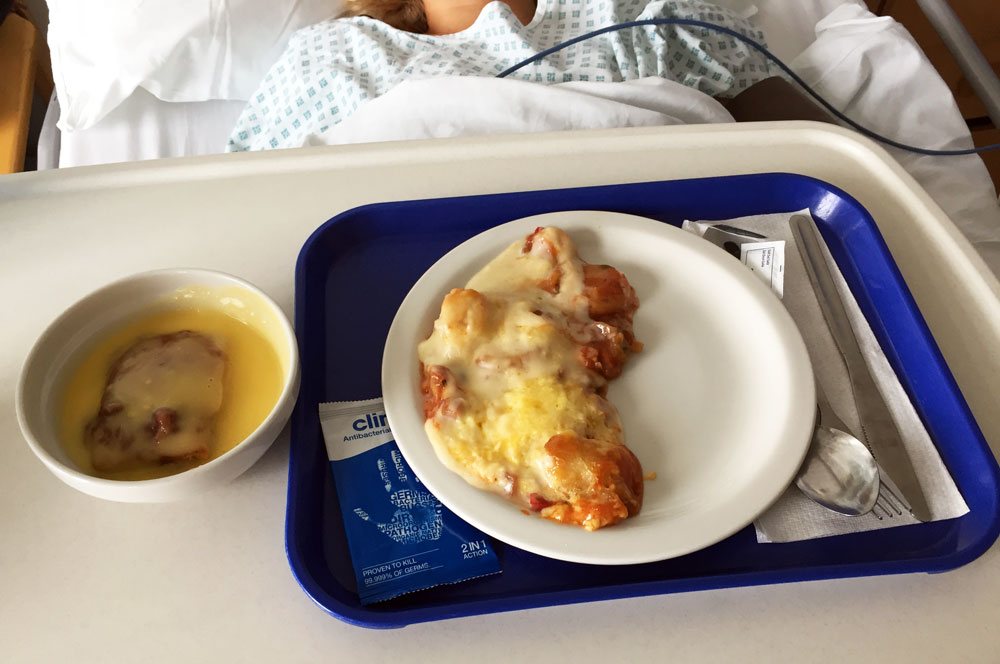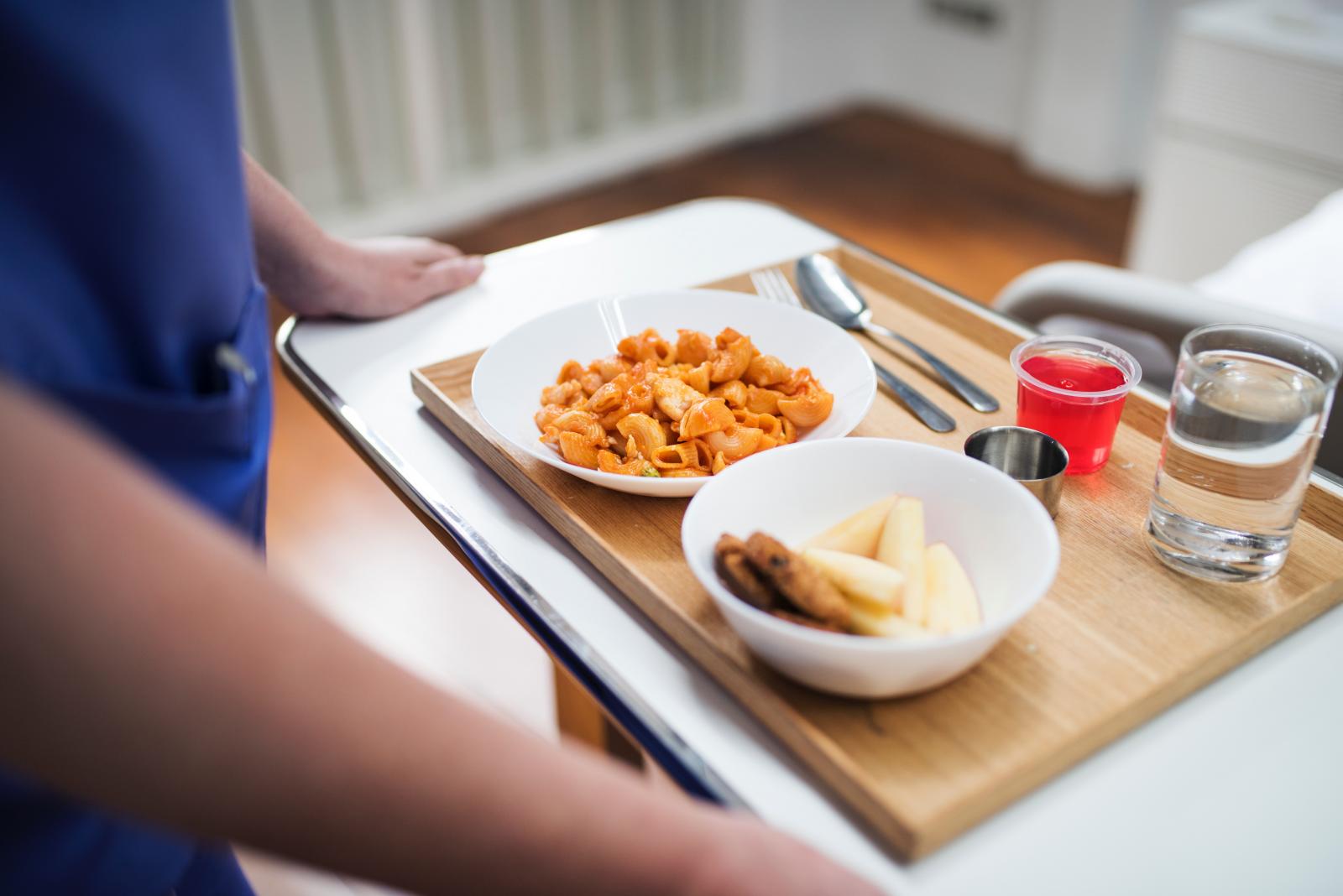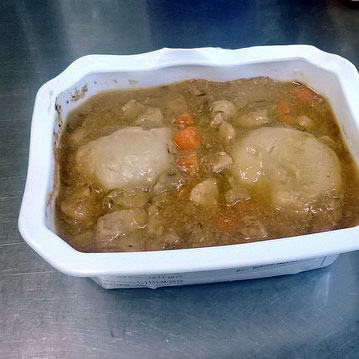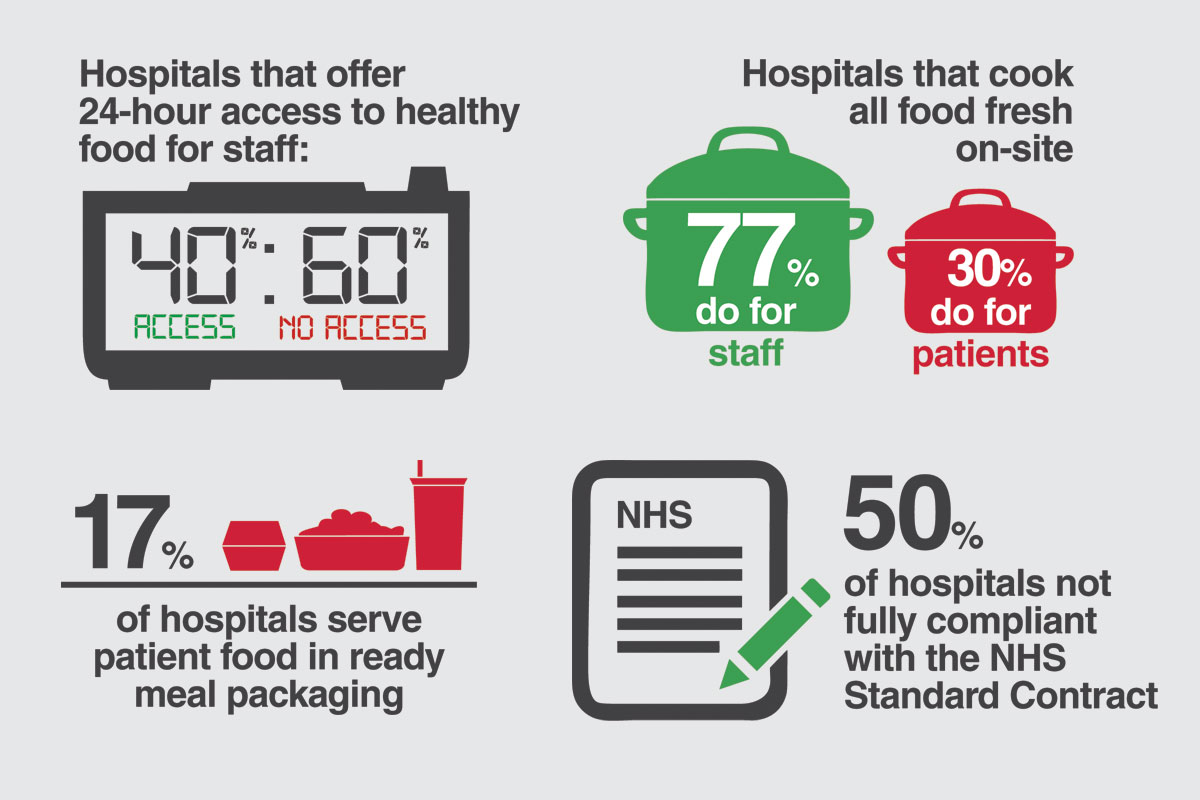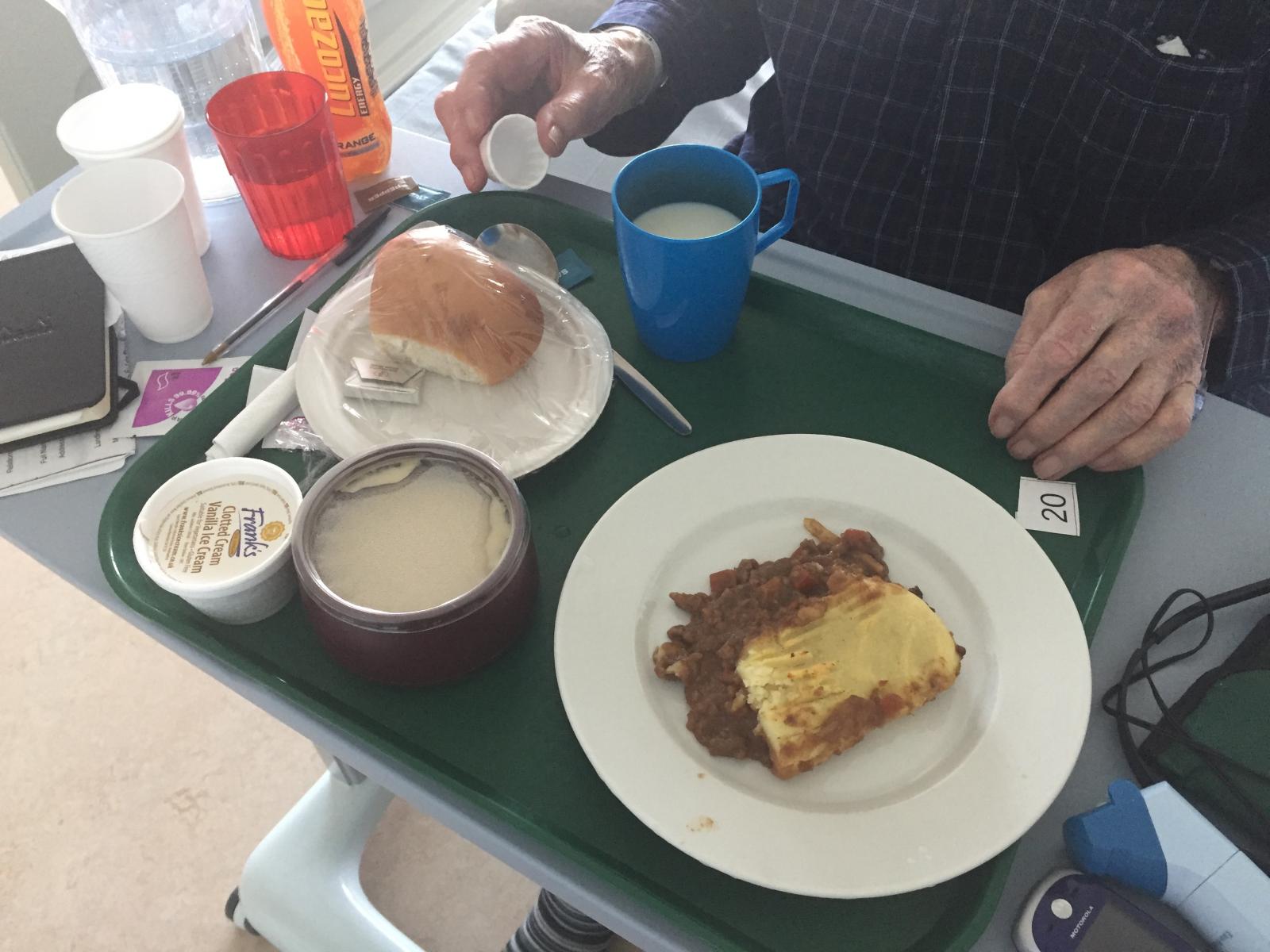Government accused of using figures which exaggerate the quality of hospital food
The government has today been accused of exaggerating the quality of hospital food, as it was revealed that fewer patient meals meet the standards set for prison food than is claimed by the Department of Health [1].
In November this year the Department of Health [3] claimed that half of patient meals meet Government Buying Standards, which are mandatory for food served in government departments and prisons, but which are voluntary for hospitals [2]. The government has rejected calls to make the standards mandatory for patient meals, claiming that half of hospitals are already voluntarily adopting them [3].
However, an investigation by the Campaign for Better Hospital Food [4] found that at least 1 in every 3 hospital Trusts which claim to be compliant with Government Buying Standards are failing to meet one of its most basic mandatory criteria, which is that half of tea and coffee bought for patients is fairly traded [1].
Alex Jackson, Co-ordinator of the Campaign for Better Hospital Food, said: “We’ve had enough of the government using poor excuses and fiddled figures to justify why it won’t introduce mandatory quality standards for patient meals. Their refusal to do this is appalling and inexplicable, and is an affront to thousands of hospital patients and to their families. Ministers must be living on another planet if they think it’s acceptable to set standards to improve meals served to prisoners, but not to sick patients”.
Government Buying Standards also include criteria to improve the healthiness of meals and the standard of their production. For example, the standards limit the amount of saturated fat and salt in meals and require that a minimum amount of food meets higher standards of production, including organic certification, and that fish is proven to be sustainable.
Ninety eight organisations [5] supporting the Campaign for Better Hospital Food, including the Royal College of Physicians, British Heart Foundation and the Patients Association, are calling on the government to support the Health and Social Care (Amendment) (Food Standards) Bill [6] which has been introduced to Parliament by Baroness Cumberlege [7], and would improve all patient meals by requiring them to meet mandatory quality, nutritional and environmental standards.
- Ends -
For more information and interviews, please contact:
Alex Jackson on Mob: 07734 902909, or by email at alex@sustainweb.org.
Notes to Editor
[1] In October 2013, the Department of Health published the results of its Patient Led Assessments of the Care Environment (PLACE) which showed that half of hospitals in England are fully compliant with Government Buying Standards. This includes both NHS and private hospitals. More details about the PLACE results are available on the Health and Social Care Information centre website at http://www.hefs.ic.nhs.uk/PLACE.asp, and the Department of Health’s data about each hospital’s compliance with Government Buying Standards (GBS) is attached to the email which you will have received with this press release.
This year the Campaign for Better Hospital Food sent a Freedom of Information (FOI) request to 247 NHS Hospital Trusts in England to find out how much of the tea and coffee they buy is certified to be fair trade e.g. meets Fairtrade or Rainforest Alliance standards. This criteria was chosen as a simple way of checking their compliance to GBS, which stipulate that half of tea and coffee purchased must be fair trade.
The FOI results show that 11 of the 30 NHS Trusts which stated that all of their hospitals are compliant with GBS in their PLACE returns are failing to meet the fair trade criteria and are therefore not compliant with GBS in practice. A list of the 11 Trusts is attached to the email which you will have received with this press release. At other Trusts, some of their hospitals stated that they are compliant with GBS and some did not, which prevented a comparison of the PLACE and FOI data.
[2] Food served in ‘central government’, including government departments and prisons, has to meet mandatory Government Buying Standards (for more details, see http://sd.defra.gov.uk/advice/public/buying/products/food/).
Food served in most public sector organisations in England already has to meet mandatory standards. In addition to food served in central government, school food in non-academy schools also has to meet mandatory nutritional standards (see http://www.education.gov.uk/schools/adminandfinance/schooladmin/a0012940/school-food-standards).
[3] During the Second Reading of the Health and Social Care (Amendment) (Food Standards) Bill on 8 November 2013 Health Minister Earl Howe said: “In 2011, Government Buying Standards for food and catering services were launched. They were compulsory for central government departments, but voluntary within the NHS. Yet already around half of all hospitals comply, with another quarter pursuing compliance.” To read a transcript of the Second Reading debate please visit http://www.publications.parliament.uk/pa/ld201314/ldhansrd/text/131108-0001.htm.
[4] The Campaign for Better Hospital Food is calling for mandatory hospital food standards, see www.hospitalfood.org.uk.
[5] A list of organisations supporting the Campaign for Better Hospital Food is available at https://www.sustainweb.org/hospitalfood/organisations/.
[6] To read the Health and Social Care (Amendment) (Food Standards) Bill please visit http://services.parliament.uk/bills/2013-14/healthandsocialcareamendmentfoodstandards.html.
[7] Baroness Cumberlege was created a life peer in 1990 and was appointed as a Health Minister from 1992 to 1997. She is a Trustee at Cancer Research UK, Vice President of the Royal Society for Public Health and Honorary Fellow at the Royal College of Physicians. For Baroness Cumberlege’s Parliamentary biography please visit http://www.parliament.uk/biographies/lords/member/2729.
Published Tuesday 31 December 2013
Better Hospital Food: The campaign represents a coalition of organisations calling on the Westminster government to introduce mandatory nutritional, environmental and ethical standards for food served to patients in NHS hospitals in England.
